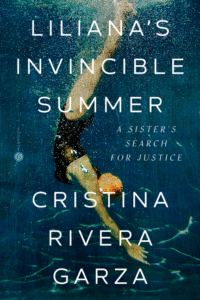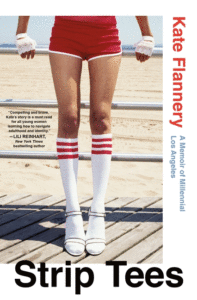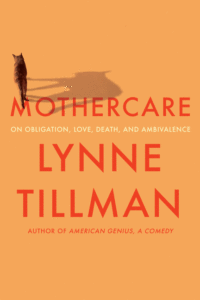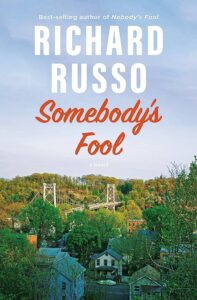
5 Book Reviews You Need to Read This Week
"I went through this, she says, so maybe you won’t have to.”
Our quintet of quality reviews this week includes Álvaro Enrigue on Cristina Rivera Garza’s Liliana’s Invincible Summer, Christian Lorentzen on Henry Bean’s The Nenoquich, Dana Schwartz on Kate Flannery’s Strip Tees, Nicole Flattery on Lynne Tillman’s Mothercare, and Hamilton Cain on Richard Russo’s Somebody’s Fool.
Brought to you by Book Marks, Lit Hub’s “Rotten Tomatoes for books.”
*

“Rivera Garza has an iron loyalty to her working method, whose goal is to find what is significant for the present in ignored episodes from the past. As the political situation of Mexico become more and more asphyxiating for a population exhausted by the government’s failure to control the violence of organized crime, her narrative focus changed: her books became more defiantly political and more personal … The femicide of Liliana Rivera Garza went almost unnoticed by the press when it happened—July 1990—but, thanks to this book, has become emblematic of the failure of Mexican justice to prosecute crimes in which the victim is a woman … In the novel Cristina Rivera Garza describes the days she herself spent bouncing between precincts and judicial records buildings in search of the closed file on her sister’s murder. Over this melancholic narration, in which Mexico City is lyrically portraited as a beautiful but devastated landscape, Rivera Garza constructs her story as a monument, pulling information from all sorts of sources … Liliana’s Invincible Summer is not a journalistic book about the crime that led to the author’s sister’s death, nor is it a literary evocation of a life and the grief its vanishing produced, but something much more powerful that happens at the crossroads of narration and archive. A story, and all the data that needs to be known to be devastated by it. Catharsis—a sentiment strong enough to produce inner change—for a time when reality is amplified by the omnipresence of information.”
–Álvaro Enrigue on Cristina Rivera Garza’s Liliana’s Invincible Summer (BookPost)
“Cynicism, laziness, anger, misplaced righteousness, vacillation between vanity and self-loathing: Such are the qualities of the superfluous men we’ve encountered in novels for centuries. Existing somehow outside the structures of family and regular employment, these prodigal sons have too much time on their hands — time to spend thinking, ranting, writing or intoxicating themselves. In the novels they narrate, they are suspended between delusions of grandeur and the dread of hitting rock bottom. The books consider the possibilities of freedom and failure that arise from the times and places that inspired them, even if their protagonists are bound for the usual destination: bourgeois assimilation. They usually tell us something about their moment’s sexual mores because more often than not their rakish heroes spend much of their idle days on romantic intrigues. One such case is Harold Raab, the narrator of Henry Bean’s first and only novel … Something else that hangs over The Nenoquich like an exhausted love affair is the 1960s. The book is told from a state of aftermath … Bean writes erotic scenes with a frankness and gusto uncommon in literary fiction today … Like his characters, Bean was not long for Berkeley. ‘All my friends,’ Harold says, ‘are moving from the flatlands up to the hills, and eventually they topple over the ridge into Los Angeles or New York.’ The Nenoquich now returns as a chronicle of sex and death in youth and a portrait of the baby boom generation at a turning point—between political radicalism and the path of temptation, fulfillment and disappointment that came to define it.”
–Christian Lorentzen on Henry Bean’s The Nenoquich (The New York Times Book Review)
“Though Strip Tees is a memoir, its story begins like a classic Hollywood noir. Kate Flannery is down on her luck, out of work and nearly out of money, drinking alone at a bar in Los Angeles. Suddenly, out of nowhere, a gorgeous stranger beckons with a mysterious job offer. Soon, Flannery is engrossed in a shadowy world of sex and money, while contemplating moral compromises that threaten her very soul. The job offer, to be clear, was at a clothing store … Strip Tees goes down as easy as a rum and Diet Coke, breezily written and punctuated at its intermission by a few pages of glossy photos. Reading it reminded me of being in middle school and sitting cross-legged on the couch with my neighbor, a freckled all-American blonde a few years older than I who had just gotten a job working at Abercrombie & Fitch at the mall … Though Flannery is clear-eyed about the exploitation and pettiness of American Apparel under Charney—and the cruelty of a culture in which a woman’s best method for career advancement was turning him on—she avoids the pitfalls of easy dogmatism, weaving in the sneaking suggestion that perhaps every company is just as exploitative, if not quite so nakedly … merely dismissing Charney as an aberrant offender—the one bad apple, good riddance—is a too-tidy conclusion for why these messy, glittering worlds continue to captivate us. Flannery seems unwilling to turn her memoir into a tidy morality tale. Good. Perhaps the book’s most important moral exists in the telling of the story itself. Here, Flannery says, gather round and let me tell you what happened to me. I went through this, she says, so maybe you won’t have to.”
–Dana Schwartz on Kate Flannery’s Strip Tees: A Memoir of Millennial Los Angeles (The Washington Post)
“Lynne Tillman doesn’t believe in redemption. ‘Contemporary novels,’ she complained in 2001, ‘have become a repository for salvation; characters–and consequentially readers–are supposed to be saved at the end.’ Tillman has always avoided sentimentality. ‘Detachment would keep her fresh, it was a kind of freedom,’ the narrator says in Haunted Houses (1987), her first novel. But if you don’t believe in salvation, how do you feel about death? That’s the question Tillman asks in her most recent and most autobiographical book … Tillman is especially interested in her mother’s ‘helpers’, a number of whom are mentioned throughout the book. She’s concerned with the ethical question of who is doing the helping, since the majority of carers in the US are people of colour. She knows that she and her sisters have hired poorly paid and possibly undocumented women to help their mother. The choice, as she sees it, is her life or theirs…It’s in the descriptions of these carers—women who are both inside and outside the family—that Mothercare begins to resemble a typical Tillman novel. She demonstrates the same talent for compression, the same affection for bizarre behavior, that characterized earlier books … Perhaps because Tillman isn’t a needy writer—she doesn’t perform self-satisfied tricks, she doesn’t concede, her bursts of humor are surreal and self-contained, close to private jokes—Mothercare is a peculiarly un-American book, free of self-actualization or therapy speak. It’s an egoless memoir, a messy house. ‘Redemption,’ Tillman tells us, ‘is an American disease’ … Mothercare shows us the end. Reading it, you feel Tillman’s clammy grip on your wrist reminding you not to waste time. She offers a writer’s prescription: examine the world closely, and as only you can.”
–Nicole Flattery on Lynne Tillman’s Mothercare: On Obligation, Love, Death, and Ambivalence (London Review of Books)
“Russo’s characters are caught in limbo. Scratch their psychic scabs—which he does, again and again—and rage and sorrow spill out … There are scattered potholes in Russo’s plot, which he patches with back story; we need not consult the other Fool volumes. Some chapters feel burdened with detail, and a few flashbacks are confusing, with scenes planted uneasily within scenes. And yet these characters’ interlocking fates move confidently toward resolution … In Russo’s hands these intentions—and the expectations and forgiveness of others—are fine brushes and a palette. He paints a shining fresco of a working-class community, warts and all, a 30-year project come to fruition in this last, best book. What happens in North Bath doesn’t stay in North Bath. And the trilogy’s true protagonist still inspires loved ones from beyond the grave. When Rub finds himself in a pickle, he summons Sully’s voice—and the dead man answers: ‘Untroubled by self-doubt, unafraid to be wrong and immune to after-the-fact criticism, Sully was Rub’s polar opposite and exactly what his present circumstances called for.’”
–Hamilton Cain on Richard Russo’s Somebody’s Fool (The New York Times Book Review)
Book Marks
Visit Book Marks, Lit Hub's home for book reviews, at https://bookmarks.reviews/ or on social media at @bookmarksreads.
























